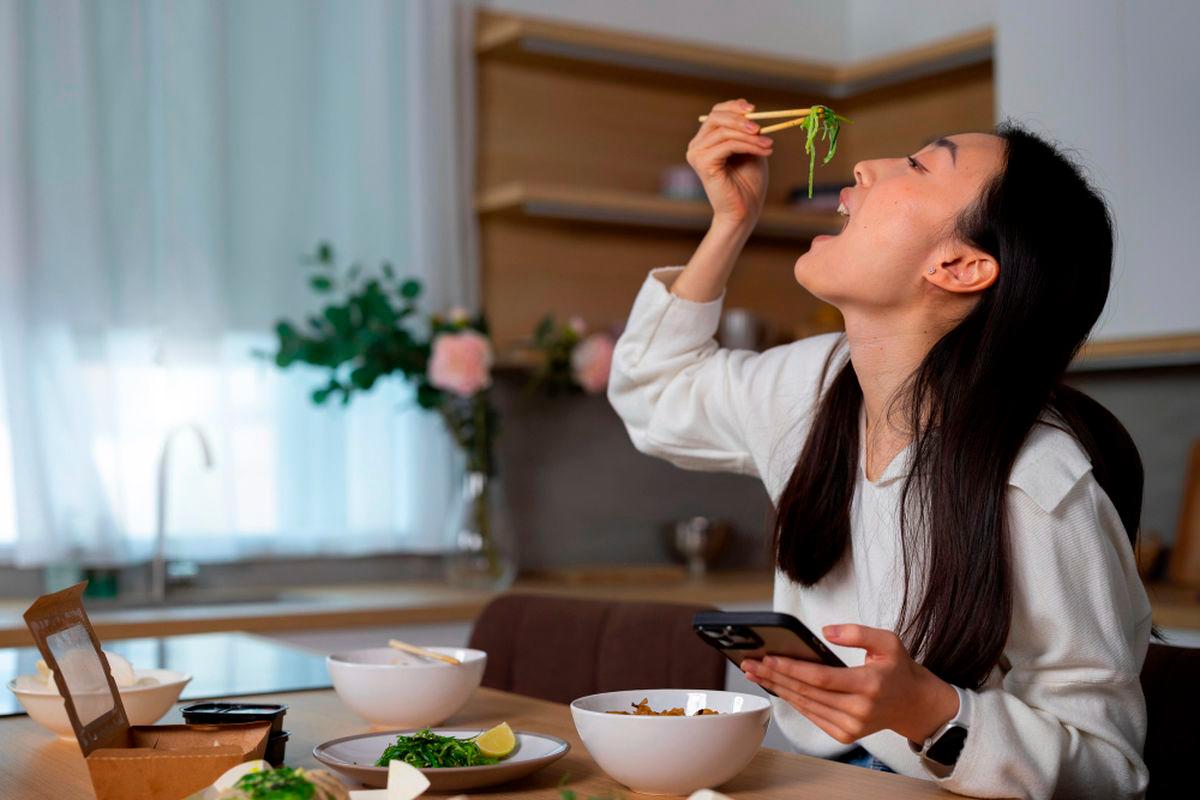GEORGE BERNARD SHAW once said: “There is no love more sincere than the love of food.”
As a food lover, I could not agree more. I am not exactly a “foodie” – I don’t travel miles in search of a specific food or have the urge to visit a particular restaurant.
But I do love eating. I enjoy the taste, the smell and the texture of whatever I am consuming.
That said, when hunger strikes and there is nothing else to eat at home, good old instant noodles will suffice. I must have some vegetables with it, so I add some cucumber or some edamame I keep in the freezer.
I have come a long way from in my relationship with food. More than 10 years ago, I had an extremely stressful job as a head-hunter, made worse by a colleague who was the bane of my existence.
I coped by eating incessantly - buns, crisps, biscuits, nuts, cake, fruit – anything that was edible. And that was on top of having large meals three times a day. The only time I was not eating was when I was asleep.
So it should have come as no surprise when, before surgery one day, the doctor walked into my room and nearly bit my head off over my high glucose reading. But surprised I was. That was the beginning of my journey with type 2 diabetes, and what an irritation that turned out to be.
When you are stressed, your body releases cortisol, which increases your appetite. In addition to that, food, like any other addiction, is often used to suppress emotions.
But diabetes became my unlikely teacher. Suddenly, I could not eat mindlessly. I had to learn to read labels, understand portion sizes and – most importantly – recognise the difference between physical hunger and emotional eating.
The journey was not easy. At first, I felt deprived and angry. Food had been my comfort, my stress reliever and my constant companion during those long, difficult workdays. Without it, I had to face my emotions head-on and discover healthier ways to cope with stress.
In recent years, one of the most important things I have learned to cope with stress is to regulate my nervous system. So instead of heading to the fridge or pantry, I turn to a few simple but powerful tools:
0 Identify and acknowledge the emotion;
0 Notice you feel it in your body;
0 Orient – take a moment to look around and notice things that are pleasant to the eye;
0 Resource – think of someone or something that instantly makes you smile;
0 Use sound – hum or try a slow, exaggerated “wow”;
0 Cold water – splash ice-cold water on your face and hands;
0 Therapy – it has truly saved my life and taken years off my face. No need for expensive creams, just unload it all on your therapist.
These techniques have been game-changers. When I feel that familiar urge to raid the kitchen, I pause and run through this mental checklist. More often than not, I realise what I am experiencing is not hunger but anxiety, frustration or overwhelm that my body has come to associate with eating.
More importantly, I have discovered that food prepared with intention and care tastes fundamentally different than food consumed mindlessly. When I cook with love – whether for myself or others – the meal becomes nourishing in ways that go beyond mere nutrition.
I learned to truly taste my food again. When you are stress-eating at your desk while answering emails, you are not really experiencing the meal. Now, I try to eat without distractions, savouring each bite and appreciating the colours, textures and flavours. This mindful approach naturally leads to eating less while enjoying my food more.
The connection between our emotions and our eating habits is profound. Food can be either medicine or poison, depending on how we approach it. When we eat to numb our feelings, we are using food as a drug. But when we eat with awareness and gratitude, food becomes what it was always meant to be: nourishment for our bodies and souls.
Today, my relationship with food is one of respect rather than desperation.
I still love eating, perhaps even more than before, but now it is a conscious choice rather than a compulsive behaviour.
That stressful job and difficult colleague are long behind me, replaced by work that feeds my spirit instead of draining it.
My diabetes is well-managed, and while I would not wish it on anyone, I am grateful for the wake-up call it provided.
Shaw was right — there is no love more sincere than the love of food. But I have learned that the truest love of food comes from understanding not just what we eat but why we eat and how we can use this fundamental human need to support our overall well-being rather than undermine it.
Nahlana T. Kreshnan is a somatic psychotherapist and life and executive coach. Comments: letters@thesundaily.com









